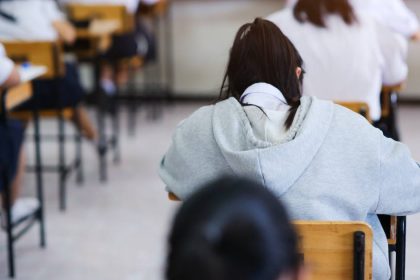Many schools struggle to find clear, practical advice on how to fulfil their duty of care obligations to LGBTIQA+ students. But there are helpful resources available, including eight recommendations about how schools can offer better support for gender diverse students.
One of the most recent and authoritative is The Voices of LGBTQIA+ Young People in NSW 2022 report by the NSW Office of the Advocate for Children and Young People (ACYP). Although the report focuses on NSW, it includes advice that could apply to any school.
Our EducationDaily summary of the ACYP report findings and its recommendations to help schools support their LGBTIQA+ students is below:
Key terminology
There is some variation in LGBTIQA+ terminology. In this article, we rely on the terminology used in legislation and by the national youth mental health foundation, Headspace, Intersex Human Rights Australia, and the LGBTIQA+ glossary of common terms issued by the Australian Institute of Family Studies.
LGBTIQA+: lesbian, gay, bisexual, transgender, intersex, queer and asexual, with the “+” acknowledging that there are many other diverse sexual orientations and gender identities.
Sex: a classification that is often made at birth as either male or female, based on a person’s external anatomical characteristics. However, sex is not always straightforward, as some people may be born with an intersex variation, and anatomical and hormonal characteristics can change over a life span.
Gender/gender identity: one’s sense of whether they are a man, woman, non-binary, agender, genderqueer, gender fluid, a combination of one or more of these definitions or a sense of identity that falls outside of these definitions. Gender can be binary (either a man or a woman), or non-binary (including people who have no binary gender at all and people who have some relationship to binary gender/s).
Cisgender/cis: a term used to describe people whose gender corresponds exclusively to what they were assigned at birth.
Transgender: someone whose gender identity does not match the gender they were assigned at birth (e.g. a baby is assigned male at birth but grows up to identify as a woman). Research tells us that around 5 per cent of people are transgender.
Intersex: the working definition of intersex used by Intersex Human Rights Australia is: “Intersex people have innate sex characteristics that don’t fit medical and social norms for female or male bodies, and that create risks or experiences of stigma, discrimination and harm.”
Background to the ACYP Report
The ACYP report, published in late 2022, is based on findings from the ACYP’s surveys of young people and covers student experiences in the areas of community, workplace, healthcare and education. The report includes multiple recommendations that are mostly directed at government, but are also relevant to schools.
The experiences of LGBTIQA+ students in schools
Key findings of the ACYP report include:
- While 69 per cent of LGBTIQA+ young people in the quantitative study said they felt safe at school, 31 per cent gave a lower rating. With that, 9 per cent gave a very negative rating.
- The most positive school-related experience reported by students was connection to, and support from, LGBTIQA+ friends.
- Students found value in: LGBTIQA+ support groups in schools, seeing LGBTIQA+ teachers at the school, seeing physical displays of support in schools such as posters and stickers.
- Many students faced bullying and harassment by peers, and some had experienced physical violence while at school. They felt these situations were made worse by a lack of teacher intervention.
- Experiences of bullying, homophobia, transphobia and harassment were prevalent across schools, causing some LGBTIQA+ students to feel unsafe. Many had changed schools as a result.
- Trans and gender diverse students described an additional layer of bullying and harassment related to the misuse of their name and pronouns and their use of bathrooms not being aligned with their gender identity.
- Most students reported that most teachers did little if anything to address homophobic and transphobic bullying in their school. In some instances, schools responded by asking the LGBTIQA+ students to change their behaviour (e.g. not to display a pride flag, or sit elsewhere in the playground) rather than by holding the wrong-doer accountable.
- Some students reported homophobic and transphobic comments made by teachers.
- Some students reported instances of schools ‘outing’ them to their parents. This most commonly occurred when students had requested to have their preferred names and pronouns used, which requires parental approval.
Recommendations
The ACYP report directs these recommendations at government agencies, such as the Department of Education.
Teacher Training: schools should arrange for teachers to complete LGBTIQA+ inclusion training to promote wellbeing and inclusion of LGBTIQA+ students.
Policies: schools should develop policies that address mistreatment and bullying of LGBTIQA+ students.
Student inclusion in policy-making: schools should include student voices in the development of policies and educational resources.
Bathrooms: schools should make available an all-gendered bathroom option that all students of all genders are able to use, alongside a single-sex bathroom option.
Although not listed in its official recommendations, the ACYP report also noted these additional recommendations from the students themselves:
Student support groups: schools should encourage and facilitate students to form their own LGBTIQA+ support groups.
Physical displays of support: schools should encourage and facilitate physical displays of support for LGBTIQA+ students, such as posters and stickers.
LGBTIQA+ perspectives in the classroom: schools should incorporate more LGBTIQA+ concepts into relevant classroom subjects such as history.
Visits from experts: schools should arrange for guests to teach students about LGBTIQA+ aspects of relevant subjects, and about LGBTIQA+ issues more broadly.
Read the Full Report
You can download the full report from the ACYP website: The Voices of LGBTQIA+ Young People in NSW







